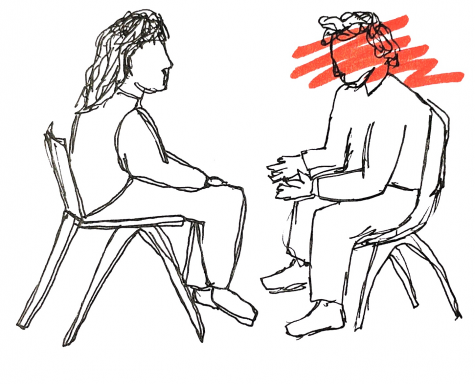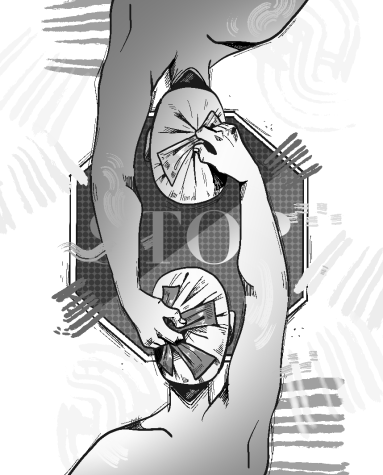Drawing the line: Replacing cancel culture with compassion
March 4, 2021
When I first saw the TED Talk by Betty Hart on canceling “cancel culture” I was curious how that could be possible. Betty argued for replacing cancel culture with compassion. She describes the act of kindness as “suffering with someone and alongside them,” because the bond between you and the other person is too strong to be overpowered by differences in ideology.
Although I believe in the power of compassion to create safe spaces and foster conversations, a resulting conflict is figuring out where to draw the line between the types of differences we are willing to accept and those we cannot. What dissimilarities are acceptable for the sake of long-lasting, healthy relationships?
Cancel culture rhetoric is usually applied to celebrities as a form of backlash for doing or saying something socially, politically and/or morally unacceptable. They are then “canceled” — meaning that their art is no longer recognized, and neither are they. For example, Ellen DeGeneres was “canceled” following reports of the mistreatment of her workers, but how does this concept work within our smaller circles, such as our friendships, families or any other relationships we deem valuable to us?

Sure, you and someone else might have a different taste in food or music, but it is not enough to completely rule them out of your life forever. They are entitled to their tastes, and so are you. So how should we react when differences go beyond preferences, when they have to do with real-life issues? What if these opinions have to do with someone’s take on mass incarceration or misogyny? This is where I believe compassion comes in to play, at least to a measured extent.
Many people may argue that because information is easily accessible and free these days, people have no excuse to be uninformed about specific essential topics and with all this evidence at their fingertips continue to be ignorant. Still, we can guide and steer people towards the light within our respective relationships. Hart refers to this as “planting the seeds of change.”
It is vital to note, however, that just because this seed has been planted, it will not necessarily grow or change the other person’s perspective. In addition, we as individuals should know that even if our opinions are deemed universally acceptable or “correct,” we are not always right either, and could always use some more educating ourselves.
When using kindness as a developmental tool, one problem that arises when being overly kind is toxicity. For instance, to be constantly arguing about why everyone deserves basic human rights can be emotionally and mentally taxing, especially if you’re engaging in the argument as a compassionate gesture. We are only human beings, and although the bonds we have are important to us, they may be detrimental to our well being and sense of identity.
That being said, it is entirely okay for a person to dissolve a relationship with a friend or family member due to deeply rooted differences, especially after trying to be compassionate by educating them. Love can only go so far for shifting ideologies.





